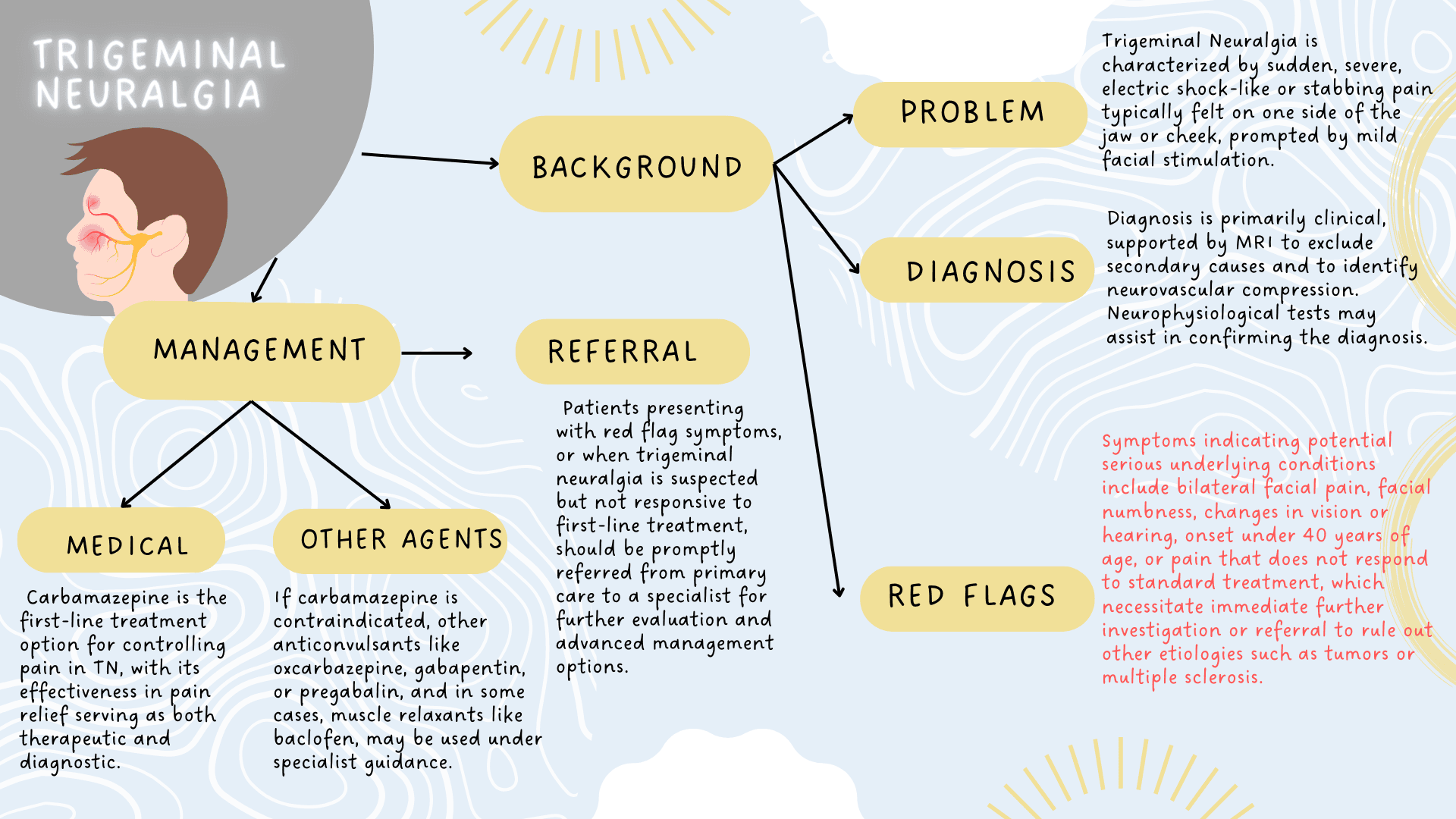Download A4Medicine Mobile App
Empower Your RCGP AKT Journey: Master the MCQs with Us!

Trigeminal Neuralgia (TN), characterized by severe, episodic facial pain, is a chronic condition with a significant impact on quality of life. The diagnosis is primarily clinical; however, investigations such as MR Imaging are indispensable for excluding secondary causes and planning management. Management strategies in primary care commence with pharmacological treatment, notably carbamazepine, and escalate based on response and tolerability. Referral to specialists is crucial when initial treatments fail or complications arise. For refractory cases, surgical interventions offer potential relief.
The following content delineates the systematic approach to the investigations and management of Trigeminal Neuralgia, aligning with best practice guidelines and ensuring a multidisciplinary approach for optimal patient outcomes.
| Stage | Action | Details |
|---|---|---|
| Investigations | MR Imaging | ♦ Gold standard to exclude secondary causes. ♦ Detailed protocols for detecting trigeminal neurovascular conflict. |
| CT Imaging | ♦ Alternative if MR is contraindicated. ♦ Includes CT head, CT cerebral angiogram. | |
| Neurophysiological Tests | ♦ Trigeminal-evoked potentials. ♦ Recording of trigeminal reflexes. | |
| Primary Care Management | Assess for Red Flag Symptoms | ♦ Urgent referral if serious underlying causes are suspected. ♦ See the table on assessment and management for red flags |
| Depression Screening | Assess for signs of depression | |
| Medication Initiation | • Offer carbamazepine starting at 100 mg twice daily.... |
Try our Free Plan to get the full article.